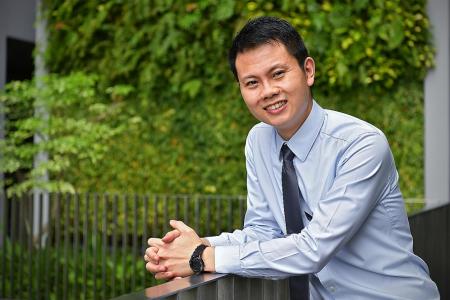
Front-line workers had to be prepared despite little info on coronavirus
SGH doctor was part of team that coordinated resources for looming crisis
by David SunWhen the news first broke of a mysterious viral outbreak in Wuhan, China, Dr Ken Goh knew he had to act fast.
As an associate consultant at the department of respiratory and critical care medicine at Singapore General Hospital (SGH), the 36-year-old had to look after the very sick patients at the hospital.
But little was known about the virus at the time, and the threat was already looming at the edge of Singapore's shores.
"We knew we had to act quickly and adapt our protocols to ensure that the best care could be provided to our patients, while minimising risk of transmission to healthcare workers," he said.
"We had to rapidly prepare and upskill healthcare workers in anticipation of a surge."
Dr Goh immediately called for a stocktake of all existing supplies at the hospital.
From masks to ventilators and essential medications, the allocation of resources needed to be optimised and conserved.
He banded together with the leaders from other departments such as nursing, materials management and biomedical engineering, and together they came up with the plans to procure more of the needed resources.
"The user familiarity, product specifications and shelf life of various equipment, medications and consumables that we could obtain had to be taken into consideration," he said.
"Many of us worked overtime to rapidly identify shortfalls and solutions so that we could prioritise and coordinate these efforts."
On Jan 23, Singapore announced its first confirmed case of Covid-19.
Within three weeks, the number of confirmed cases here ballooned to 58, including seven who were in the intensive-care unit.
"I vividly remember our first Covid-19 patient in ICU," said Dr Goh, without revealing which patient this was.
"His condition was deteriorating rapidly, and he had to be put on a ventilator for assisted breathing."
He said this required the insertion of an airway tube for the patient, which had a high risk of disease transmission for the healthcare workers.
"At that time, we knew little about the virus," said Dr Goh. "Reports from China suggested that many patients eventually succumbed to the virus and died. This made some of us nervous."
Despite their anxieties, he said not a single person in the team complained or showed any hesitation in performing their duties.
"Instead, we came together as a team and believed in each other's training and capabilities," he said.
The patient eventually recovered and was discharged.
Dr Goh, who graduated from Duke-NUS Medical School in 2012, said his training there helped him think ahead.
"Many of my colleagues in SGH were once my mentors and teachers when I was a medical student," he said.
"It has been busy for many of us, yet a heart-warming experience when we see so many healthcare workers working hard together to do the best for our patients."